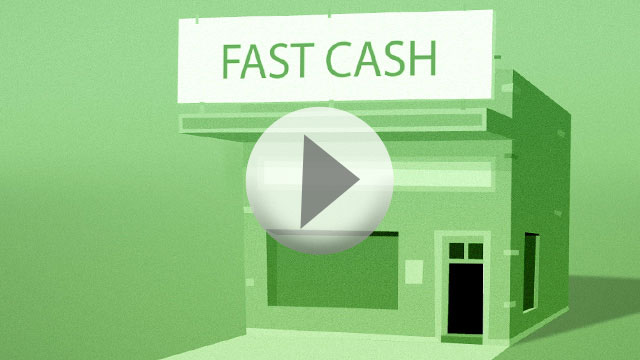Being broke is expensive. Right now, so many people are scrambling to figure out how to make rent, cover utilities, pick up some work, get their unemployment checks, and keep body and soul together. When it’s getting down to the end of the month, if people have exhausted personal loans through their bank or credit union, they may be putting more on their credit card, or getting a cash advance. And then they might turn to payday loans.
Payday loans aren’t anybody’s first choice. You probably already know they’re an expensive way to get money — sometimes charging annual percentage rates of as much as 500-700%. What usually happens is that somebody needs money for a couple of weeks, to get them through ’til payday. So they take out a short-term loan with the idea of repaying it when they get paid. But studies have shown that very few people are one and done with payday loans. Instead, at payday, it may be hard to repay the loan plus the fees and interest. So you may roll it over for another two weeks. And then there are more fees and interest. And so on until people can wind up paying thousands of dollars to repay one $500 loan.
So: read the terms of the loan really carefully. Add up how much you’ll have to pay if you can’t make that repayment in 2 weeks. And ask yourself: will taking out a payday loan do more to help or hurt you?
Sometimes there are only bad choices or worse choices. But you don’t want to be blindsided with the long-term bad as you’re trying to get back on your feet. So: check out the real cost of any loan before you sign, and learn more about payday lending.


In reply to What is the procedure for by Don't use your…
The Consumer Financial Protection Bureau (CFPB) has more information about payday loans. CFPB says if you want to know whether a business is licensed to do business in your state, you can contact your state attorney general or state regulator.